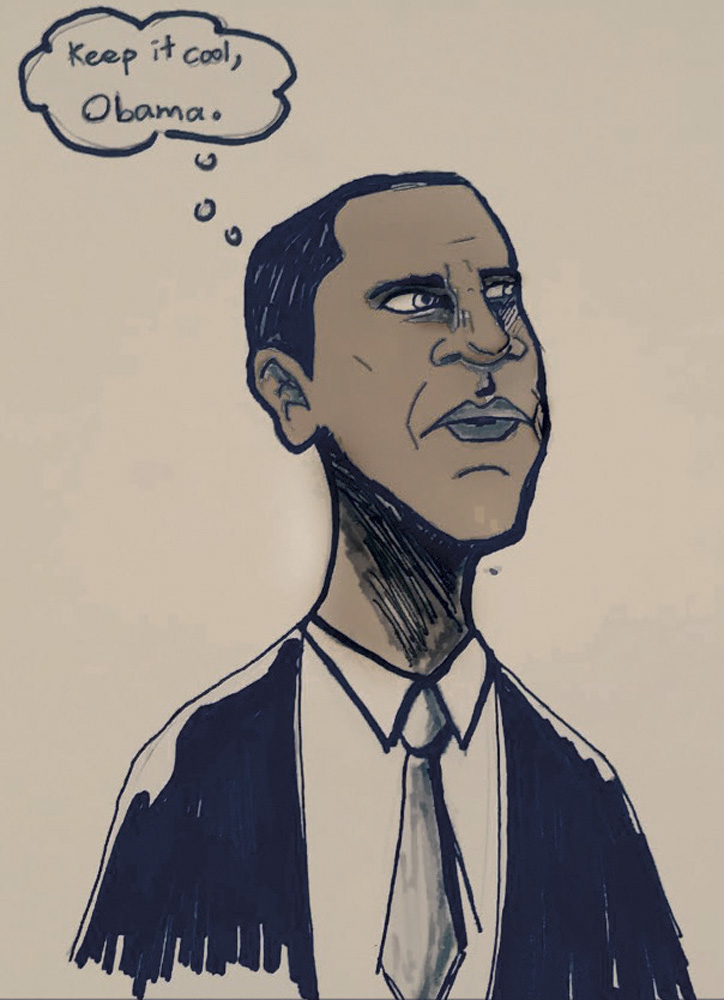
Graciela Juarez
With the month of January coming to an end, the nation faces a transition of power. Barack Obama has stepped down from the presidency and President Donald Trump has officially taken his seat in the Oval Office. It’s during these times that we begin to look back at the former president’s time in the White House to acknowledge his accomplishments and criticize where he fell short. One common criticism that tends to be brought up when Obama’s name is mentioned is his demeanor.
Throughout his presidency, Obama has received endless backlash time and time again for being too calm and composed. Some would say his unflinching composure is a key quality that is needed in someone taking up a position of power, but others would disagree. Some believe showing anger in response to a situation is a characteristic of strong leadership and is therefore necessary for a president.
Some people feel that Obama should have presented some of his stances on certain issues with more emotion to appear empathetic and ready to fight for the American people. However, Obama has always been aware of the fact he has to be more careful with his presentation.
Being our first black president, Obama had to maintain a certain persona during his presidential campaigns, and throughout his presidency. There were, and still are, people who continue to criticize him for being too calm, but his cool and collected composure is a necessary characteristic he had to possess for the presidency to avoid being labeled as an “angry black man,” a stereotype that has been around since the beginning of slavery.
What exactly is the “angry black man” stereotype? It originated during the time of slavery in our country, and began with memorable black men who fought against racism and oppression with heated passion. Men such as Nat Turner inspired fellow slaves to rise up against their masters in the 19th century, while years later human rights activist Malcolm X courageously advocated for the rights of black men by harshly criticizing white America.
White men in America feared these types of men because they were being fueled by centuries of pent-up anger and oppression. This also further ingrained into white Americans another common stereotype that labels black men; they are, aside from being temperamental, dangerous. In this case, black men who take on a more aggressive and passionate persona run the risk of being feared by a vast majority of the public, and Obama is no exception to this fact.
There have been countless articles printed throughout his presidency that have gravitated towards this issue of the “angry black man” that irked many Americans. CNN received tons of comments on an article it posted back in 2010 about Obama’s emotionless response to the oil spill in the Gulf of Mexico and that his cool composure was a learned response. CNN stated that “Obama’s critics [were ignoring] a lesson from American history: Many white Americans don’t like angry black men.”
Responses came flooding in from people, both black and white, being offended that CNN published such an article that blatantly “[tried] to drum up some racial tension.” While tons of people responded that the article was offensive, there were also a small handful of people who fought back by saying “CNN didn’t drum up racial tension. Yes, this is news.” I agree that this was, and still is news today. Ignoring American history does no one any favors. Acknowledging this truth is a step towards being able to demolish racial stereotypes.
There is no way Obama would have been elected had he presented himself in a similar fashion to that of Trump. If he had so much as shut down a small time reporter for criticizing his take on foreign policy, he wouldn’t have been seen as a strong person who stands by what he believes in. He would have been viewed as someone who angers easily and doesn’t take criticism well. His cool, collected composure is a key quality of his leadership skills and Trump would do well to take a few pointers.










